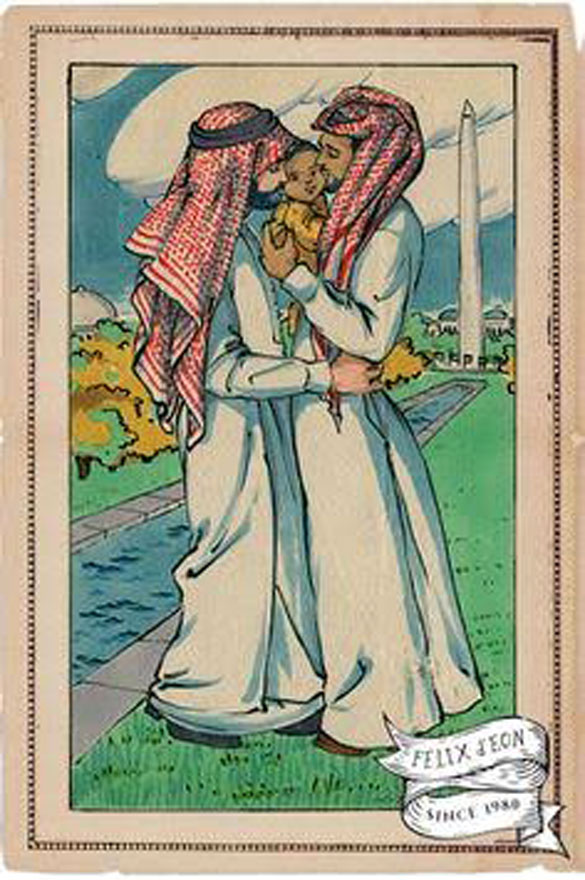The Quran on Homosexual Relations

By Naseer Ahmed, New Age Islam
2 November 2020
(May Peace Be On All The Prophets)
The Islamic jurists err by laying down the law for the punishment of homosexuals based on the story of Prophet Lut in the Quran rather than on the clear legislative verses on the subject. This article explains how and why they err.
The first thirteen years of preaching Islam in Mecca was a period of propagation of the deen of Islam, teaching right from wrong and of giving glad tidings to those who heeded the Message and warnings to the people of the consequences in the Hereafter and in this world, if they rejected the Prophet and Allah’s Message. The warning was by way of retelling stories familiar to the people, of bygone generations destroyed by an Act of God for their rejection of the Messengers sent to them. These are the stories of the people of Noah, Hud, Salih, Lut and Shu’aib and form a distinct category as can also be judged by the fact that all are referred to in a single verse or in successive verses in several Surahs. The stories belong to the Meccan period and found only in the Meccan Surahs. These are also the most oft-repeated stories in the Quran and evidence of repeated and adequate warnings given to the people of Mecca and figure in 32 of the 86 Surahs revealed during this period.
----------------------------------------------------------------------------------------------
Also Read: The Holy Quran: Why Were The Verses On The People Of Lut Revealed?
----------------------------------------------------------------------------------------------
What is common to all these stories is that most of the people rejected the Messenger and actively opposed him and hindered those who followed the Messenger and even persecuted them. They also mocked and taunted the Messenger asking him to bring down the punishment of Allah that the Messenger had repeatedly warned about. These Messengers also prayed to Allah to deliver them and their followers from the violent rejecters. Those who heeded the Messenger and Allah’s message were saved and the rest destroyed by an act of God.
The story of Moses is also told repeatedly during the Meccan period but differs in that only Pharaoh and his men who followed Moses into the sea were drowned and not every disbeliever. This is because the other disbelievers were not defiant rejecters but their non-acceptance was “because of the fear of Pharaoh and his chiefs, lest they should persecute them” (10:83)
----------------------------------------------------------------------------------------------
Also Read: To Sustain an LGBTQ Affirming Islamic Discourse, Lateral Violence Must End
----------------------------------------------------------------------------------------------
The relevant verses that bring out what is common to the people destroyed by God are quoted below:
(11:32) They said: "O Noah! thou hast disputed with us, and (much) hast thou prolonged the dispute with us: now bring upon us what thou threatenest us with, if thou speakest the truth!?"
(7:70) They (people of Aad) said (to the Messenger Hud): "Comest thou to us, that we may worship Allah alone, and give up the cult of our fathers? bring us what thou threatenest us with, if so be that thou tellest the truth!"
(7:77) Then they (the Thamud) ham-strung the she-camel, and insolently defied the order of their Lord, saying: "O Salih! bring about thy threats, if thou art a messenger (of Allah)!"
(29:29) "Do ye indeed approach men, and cut off the highway?- and practise wickedness (even) in your councils?" But his (Lut’s) people gave no answer but this: they said: "Bring us the Wrath of Allah if thou tellest the truth."
(26:187) (They said to Shu´aib )"Now cause a piece of the sky to fall on us, if thou art truthful!"
The stories differ in the details and some of the people were also guilty of certain crimes/sins. It would be erroneous to infer from these stories that the Islamic punishment for such crimes should be death since had Allah destroyed the people for those other crimes/sins. This is erroneous because none of the people were destroyed for any crime/sin other than the active and even violent rejection of the Messenger, hindering the believers from following the path of Allah and their defiance culminating in daring Allah and His Messenger to bring down the punishment that they had been warned about. The other failings may have been the reason for their rejection of the Message and the Messenger, but they would not have been destroyed had they continued to peacefully reject the Message and the Messenger, not hindered people from following the path of Allah, but otherwise continued to practice whatever they did. However, the jurists make the mistake of thinking that the people of Lut were destroyed for practicing homosexuality and others for practicing polytheism or worshiping idols. This is far from the truth and can be established to be so from the stories of the remaining prophets mentioned in the Quran and from the very clear verse such as 2:256 “There is no compulsion in religion”.

People Were Not Destroyed For Rejecting The Messenger And Continuing To Practice Polytheism
There are stories of other prophets such as Ibrahim and Elias who were also rejected by the people who practiced polytheism and worshiped idols, but this did not end with their destruction. The defiance of these people did not cross the threshold of challenging Allah and the Messenger to bring on the punishment that they had been warned about, nor were these two prophets driven to pray to Allah for deliverance from the people.
Prophet Yusuf precedes Moses and preaches in Egypt but we do not find any believers among the Egyptians when Moses is sent as a Messenger to the Pharaoh. Prophet Yusuf’s Egyptian audience was not destroyed for rejecting the Message perhaps because it was a peaceful rejection of “unto you be your religion and unto me mine”. The non-believing Egyptians are not destroyed even after Moses was sent except those who followed the Pharaoh in pursuit of Moses.
-------------------------------------------------------------------------------------
-------------------------------------------------------------------------------------
From the stories of the prophets it is therefore erroneous to infer that:
· The punishment for polytheism and idol worship is death in Islam – not even for those vanquished in war (as brought out in a separate article)
· The punishment for homosexuality is death (Homosexuality characterised the people of Lut)
· The punishment for giving short measure is death (Common trait of the people of Shu’aib)
The Legislative Verses In The Quran On The Subject Of Female And Male Homosexual Relations
The Quran is a clear perspicuous book without crookedness and simple to understand as described by the Quran itself. Why then do the scholars look for an answer when the same is given in explicit legislative verses? The two verses on female and male homosexuality are as follows:
(4:15) And for those who commit an act of lewdness (l-fāḥishata ) among your women, Take the evidence of four (Reliable) witnesses from amongst you against them; and if they testify, confine them to houses until death do claim them, or Allah ordain for them some (other) way.
(16) And for those who commit it among you, punish them both. If they repent and amend, Leave them alone; for Allah is Oft-returning, Most Merciful.
The word l-fāḥishata has been uniformly used to describe the sexual immorality of the people of Lut and there is no doubt there that it refers to homosexual relations in the context of the people of Lut while the word in general may mean a shameful sexual act.
See how beautifully the Quran makes clear the meaning of l-fāḥishata in 4:15 by linking the two verses. Verse 4:15 is about the women and 4:16 about the men. The sinful sexual misconduct mentioned in 4:15 is referenced in 4:16 which means the men guilty of the same sin/crime as the women in 4:15. What could this be except homosexual relations? Could it be sexual intercourse outside marriage and if so, why is the punishment different when it is the same in verse 24:2 for fornication? None of the two cited verses is about zina because the Quran uses the word zina when it means zina and it uses the l-fāḥishata when it means homosexual relations because a more precise word for homosexuality may not have existed in the Arabic language of the 7th Century. For arguments sake, it could also mean indecent exposure but then why different punishments for men and women and isn’t death too severe a punishment? Moreover, the subject of male and female modesty is covered by a different verse.
-------------------------------------------------------------------------------------
Also Read: Why Accommodating Gay Rights within Islam is a Challenge?
-------------------------------------------------------------------------------------
Now if it does mean that the sin for which the punishment prescribed is homosexual relations, why is the punishment different for the men and the women? In the context of homosexual relations, the explanation is simple and is as follows:
Morality can be defined as what is good for the society and immorality as what harms society. The punishment for an act of immorality must then be commensurate with the potential for harm that can be caused by the act of immorality. If lesbianism causes much greater harm to the society and male homosexuality causes almost no harm, then it calls for different punishments. For a very long time, our species was constantly under the threat of extinction and procreation was considered to be the highest virtue. For procreation, female fertility matters but male fertility is largely redundant as long as there are enough males for all the fertile women to procreate to their potential. Losing fertile women to lesbianism is a direct loss to the society while men becoming unavailable for procreation because of homosexual relations makes little difference. The punishments are therefore different for the male and female homosexuals.
Note the temporary nature of the prescription in verse 4:15. It is meant to be revised with changed circumstances. Now that our species is no longer under the threat of extinction the punishment for women can be the same as that for the men. Verse 4:15 is an excellent example of how the law can change with a change in the circumstances and why therefore; we should not rely on the previous books for the law. The classical Islamic scholars however rely heavily on the previous books. They are unable to reconcile the very mild punishment in 4:16 with the painful death penalty in the previous Scriptures and in the Judeo-Christian traditions and therefore seek support in the story of Lut to prescribe the death punishment for the homosexuals.
----------------------------------------------------------------------------------------------
Also Read: Why Gay Muslims Are Upheld To Standards That Not Even Prophets Fulfil?
----------------------------------------------------------------------------------------------
The population growth in several countries has fallen below the levels required to sustain their population at current levels. If homosexuality assumes pandemic proportions as it apparently did for the people of Lut, then our species may once again come under the threat of extinction. When this happens, verse 4:15 may once again become operative.

Conclusion
There cannot be an “unnatural” sexual act but for very good reasons, there are acts such as incest, which are taboo in every society and religion. Our differing sexual behaviours are largely governed by our conditioning and not so much by our genetic code. If in our Prophet’s time and society, there wasn’t even one known case of homosexuality, then this must be on account of their conditioning even before Islam. Homosexuality is therefore easily avoidable through the “right” conditioning and there is no doubt from the story of Lut and his people in the Quran, that Allah dislikes it. In the stories of the people of Lut in the Quran, their defiant homosexuality is the only sin mentioned, and this behaviour/deed has been described as:
l-sayiāti - evil deeds; Ādūna – transgression; l-qālīna - detestable
and the people are described as:
Tajhalūna – ignorant; Fasiq - exceeding all bounds; Ẓālimīna - wrong doers; Yafsuqūna - defiant
In verse 6:151, l-fawāḥisha or homosexuality is haram or prohibited along with other heinous deeds such as unlawful killing, associating partners with Allah etc. It is also clear from verse 4:16 that punishing homosexuals is not important unless it becomes a public nuisance, but the practice must be discouraged through appropriate conditioning.

No comments:
Post a Comment